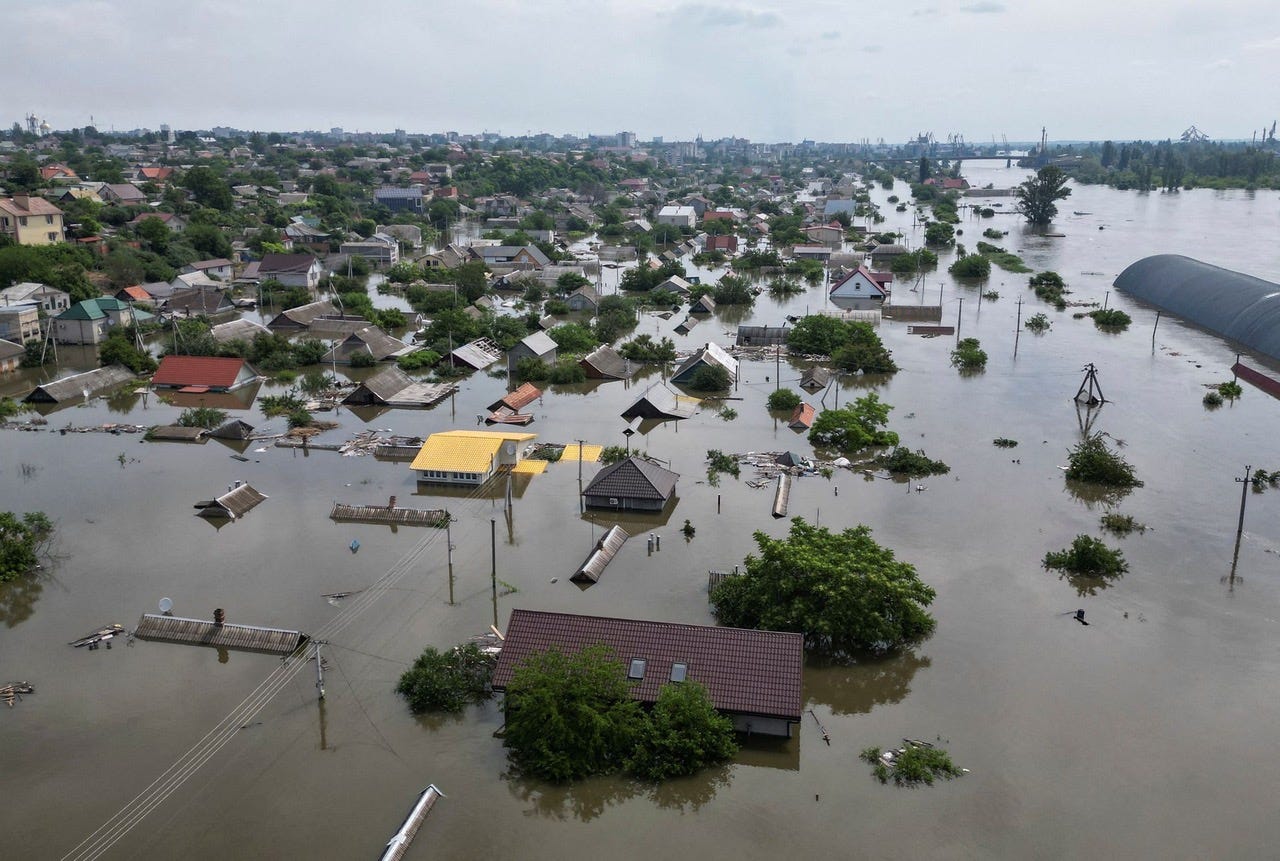Tour de Farce
“People who think they know everything are a great annoyance to those of us who do.” – Isaac Asimov
On June 6, the Nova Kakhovka Dam in Russian-occupied Ukraine was destroyed in an apparent act of sabotage. The collapse devastated downstream communities with a flood that killed dozens of innocent non-combatants, ruined vast areas of prime farmland, and cut off power and water supplies to tens of thousands of people. As with the sabotage of the Nord Stream pipelines, both sides quickly accused the other of being responsible, and the affair has subsequently devolved into yet another social media Rorschach test.
Whatever your views on culpability may be, the destruction of the dam is undeniable proof that war is hell, and those mired in it can be forgiven for seeing what they want to see in the news flowing in from the front. Morale influences outcomes on the battlefield, and propaganda has long been recognized as a weapon of conflict. But what about US climate envoy and Noted Scientist™ John Kerry? What’s his excuse for uttering gibberish while discussing the consequences of the dam’s destruction (emphasis added throughout)?
“The war in Ukraine is aggravating the painful effects of climate change, causing not only severe damage in Ukraine, but also distress in a wider circle that includes Africa and South Asia, according to John F. Kerry, the United States special presidential envoy for climate.
The war demonstrates how ‘climate change is a threat multiplier,’ Mr. Kerry said in an interview on Wednesday.”
We are not sure what is more bewildering: that Kerry would think it appropriate to say such a thing, or that the New York Times would feel duty-bound to report it as anything other than parody. How the war is inconveniently impacting Kerry’s climate agenda is something of an obsession for him, as though counting carbon emissions supersedes the death, destruction, and risk of thermonuclear conflict resulting from the ongoing hostilities. On the literal eve of war last February, Kerry soberly relayed to the BBC his hope that “President Putin will help us to stay on track with respect to what we need to do for the climate.” For real. He actually said that.

The growing disconnect between what the cadre of elitist Western political leaders and their enablers in the media think is important to everyday citizens and what actually matters to the electorate has reached a breaking point. It comes as no surprise that confidence in the media has collapsed:
“Half of Americans in a recent survey indicated they believe national news organizations intend to mislead, misinform or persuade the public to adopt a particular point of view through their reporting. The survey, released Wednesday by Gallup and the Knight Foundation, goes beyond others that have shown a low level of trust in the media to the startling point where many believe there is an intent to deceive.
Asked whether they agreed with the statement that national news organizations do not intend to mislead, 50% said they disagreed. Only 25% agreed, the study found. Similarly, 52% disagreed with a statement that disseminators of national news ‘care about the best interests of their readers, viewers and listeners,’ the study found. It said 23% of respondents believed the journalists were acting in the public’s best interests.”
Among the media’s greatest failures is its coverage of all things “climate change.” For decades, journalists have parroted pseudoscientific nonsense—characterizing manageable risks as catastrophic, expensive and unworkable solutions as easy salvation, and obvious policy failures as proof of the need to double- and triple-down. As the developing world walks away from its climate targets, leaders in the West are stoking a powerful backlash by insisting its citizens continue down the path of fruitless sacrifice. Here too, the media regularly debases itself by characterizing those who question the carbon orthodoxy as heretics to be banished from public discourse. That which can’t go on forever usually doesn’t, and serious cracks are beginning to appear at the base of this unsustainable government-media-climate power nexus. Let’s examine some recent developments that signal a reckoning may be on the horizon.


